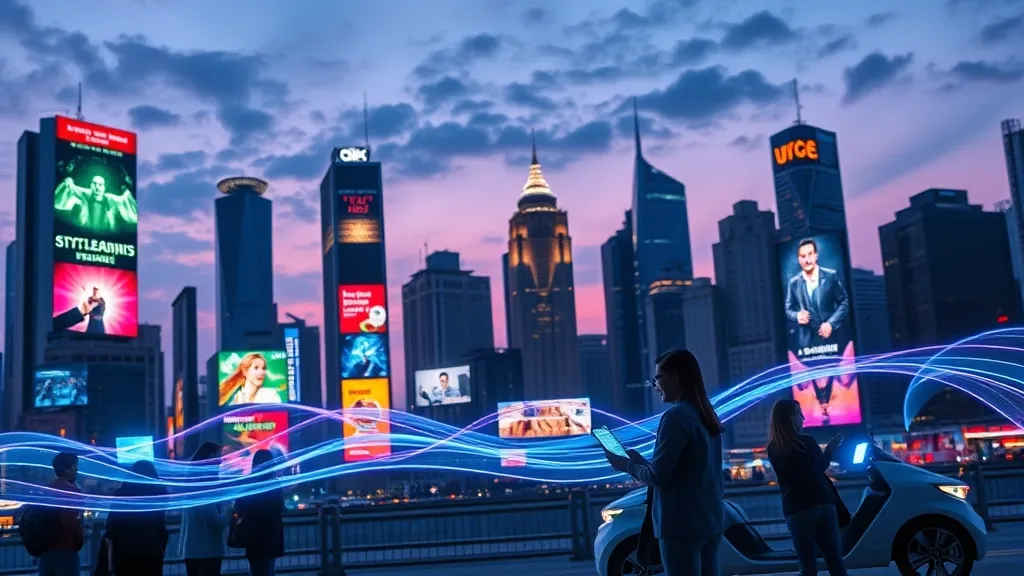The Digital Alchemist: Turning Data into Gold
So, here’s the thing: we’re living in a world where every click, swipe, and scroll is turning into data. It’s like we’re all walking around with little gold mines in our pockets, and businesses are just waiting to dig in. But let’s be real—data alone isn’t worth much unless you know how to use it. Enter the digital alchemist, the modern marketer who turns raw data into meaningful insights and, ultimately, profit.
Imagine trying to bake a cake without a recipe. You’ve got all these ingredients, but if you don’t mix them right, you might end up with a gooey mess instead of a delicious dessert. That’s kinda what it’s like with data. You’ve got user behavior, site traffic, social media interactions—the whole shebang. But without the right tools and strategies, it’s just a bunch of numbers and graphs that don’t mean much.
In 2025, businesses are increasingly harnessing AI and machine learning to sift through vast amounts of data. It’s like having a super-smart assistant who never sleeps—always analyzing patterns, predicting trends, and helping marketers make decisions that actually work. I mean, who wouldn’t want that? It’s like having a crystal ball, but way cooler and less creepy.
- Personalization: Consumers are expecting tailored experiences. Data helps businesses understand what customers want, leading to personalized marketing that feels less like an ad and more like a friendly recommendation.
- Efficiency: With the right data insights, companies can optimize their campaigns. Less guesswork means more focused efforts and, let’s be honest, that’s just good business sense.
- Real-time adjustments: The digital landscape changes fast. With data analytics, businesses can tweak their strategies on the fly, adapting to what’s working and what’s not.
But hey, let’s not forget the human element. Data might be king, but it’s the stories behind the numbers that really resonate. A well-crafted narrative can elevate a brand, making it relatable and memorable. So, while we’re busy turning data into gold, let’s make sure we’re not losing sight of the heart of our message.
In a nutshell, digital marketing technology isn’t just about crunching numbers; it’s about understanding people. And as we move deeper into 2025, the businesses that get this balance right will surely come out on top. Who wouldn’t want to be the alchemist of their own success?
The Rise of the Hyper-Personalized Experience
You know, personalization has been a buzzword for a while now in the digital marketing world, but it’s really hitting a new level in 2025. I mean, when was the last time you went on a website and didn’t feel like it knew your life story? It’s like we’ve all got virtual best friends in our favorite brands. Scary? Maybe a little. Cool? Definitely.
So, what’s driving this hyper-personalization trend? Well, it’s all about data—lots and lots of data. Brands are diving deep into customer insights, and they’re getting pretty good at predicting what we want before we even know we want it. It’s like having a personal shopper who’s always one step ahead of you. I sometimes wonder if my phone is just a little too good at guessing my coffee cravings. I mean, I didn’t think I needed a pumpkin spice latte at 7 AM, but here we are!
- Tailored Content: Brands are customizing everything from emails to social media ads. You might get an email that feels like it was written just for you, because, well, it kinda was. If I see another generic “Dear Customer” email, I might just lose it.
- Dynamic Pricing: Ever notice how prices change based on your browsing history? Yep, that’s hyper-personalization at work. It can be a bit jarring, though—like, do I really need to pay more just because I looked at that fancy jacket for too long?
- Predictive Analytics: This is where things get wild. Companies are using algorithms to predict what you might buy next based on your past behavior. It’s like they have a crystal ball, and honestly, it’s both impressive and a little creepy.
But hey, it’s not all about the tech. There’s a human element here, too. People want to feel seen and understood, right? When brands take the time to get to know their customers, it builds trust and loyalty. I mean, I’m way more likely to stick with a brand that remembers my birthday and sends me a little treat (hint, hint).
In a world where we’re bombarded with ads and offers, hyper-personalization helps brands cut through the noise. It’s like having a friendly conversation instead of being shouted at by a sales pitch. And let’s be real, who doesn’t want that? So, as we move further into 2025, expect to see even more clever ways brands are crafting experiences that feel like they were made just for you. It’s an exciting time to be a consumer, for sure!
Automation Nation: Robots Taking the Wheel
You know, it’s kind of wild how quickly things are changing in the world of digital marketing. I mean, just a few years ago, the idea of having robots take over certain tasks felt like something out of a sci-fi movie. But here we are in 2025, and automation is not just a buzzword; it’s a game changer. Seriously, if you’re not on the automation train yet, you might want to hop on before it leaves the station!
So, what’s the deal with automation? Well, it’s all about efficiency, baby! Businesses are leveraging tech to streamline processes, cut down on human error, and yes, save a whole lot of time. Imagine having a virtual assistant that can handle your social media posts, analyze customer data, and even send out emails while you kick back with a cup of coffee. Sounds dreamy, right?
Here’s a quick rundown of how automation is shaking things up:
- Chatbots: These little guys are everywhere now! They’re like the friendly faces of your favorite brands, answering questions and guiding customers 24/7. Honestly, I’ve had some pretty entertaining chats with them, even if they don’t always get my sarcasm.
- Email Marketing: Automation tools can now personalize email campaigns based on user behavior. So, instead of getting bombarded with random sales, you might actually see something that fits your interests. It’s like they know what you want before you do!
- Content Creation: AI-driven tools are starting to help with content generation. I mean, it’s not quite ready to replace us writers (thank goodness), but it can assist in brainstorming topics or even drafting basic outlines. Just don’t ask it to write your memoir, okay?
But, here’s the thing: while automation can be a lifesaver, it’s not a one-size-fits-all solution. You still need that human touch, especially when it comes to building relationships with customers. People want to feel valued, not like they’re just another number in a system. So, striking that balance is key.
In conclusion, automation is definitely taking the wheel in digital marketing, and it’s making things a lot easier for businesses. But remember, it’s not about replacing people; it’s about enhancing what we can do. So, let’s embrace this automation revolution, but let’s not forget to keep the human element alive!
Navigating the New Normal: Ethics in the Age of AI
So, let’s chat about ethics in this brave new world of AI. It’s kind of wild, right? I mean, we’re living in an age where machines can learn and make decisions. It’s like something out of a sci-fi movie, only with fewer robots taking over the world (for now, at least!). But with great power comes, you know, great responsibility—cue the Spider-Man quote!
As digital marketing technology evolves, it’s super important to think about the ethical implications of using AI. First off, there’s data privacy. We’ve all heard the horror stories about companies mishandling personal info, and it’s a real concern. Consumers are getting savvier, and they expect brands to protect their data like it’s a precious secret. So, if you’re in the digital marketing game, you better be transparent about how you collect and use data. Otherwise, you might find yourself on the receiving end of some serious backlash.
Then there’s the whole issue of bias in AI algorithms. If the data you’re feeding your AI is biased, guess what? The outcomes will be, too! It’s like trying to bake a cake with expired ingredients—nobody wants to eat that! Marketers need to be aware of this and work hard to ensure that their AI tools are trained on diverse and representative data sets. Otherwise, you risk alienating whole groups of people, and let’s be real, that’s not a good look for any brand.
- Transparency is Key: Be open about your AI processes.
- Check Your Data: Make sure it’s diverse and unbiased.
- Respect Privacy: Treat consumer data like gold.
And hey, let’s not forget about the creative side of things. AI can help with content generation, but it’s crucial to maintain a human touch. People want to connect with other people, not robots. Infusing personality and authenticity into your marketing is what’ll set you apart in a sea of algorithm-driven content.
In conclusion, navigating the ethics of AI in digital marketing isn’t just about following rules; it’s about building trust and fostering relationships. This new normal offers a ton of opportunities, but it’s up to us to make sure we’re using them responsibly. So, let’s keep the conversation going and ensure we’re steering this ship in the right direction!

